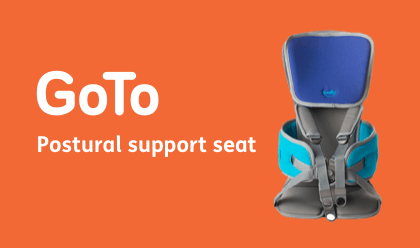Five ways to support Additional Needs siblings, an overlooked group

This article is written by Mark Arnold’s daughter, Phoebe, who shares her experience of growing up as an additional needs sibling to her brother, James, as well as offering learnings for us all…
Growing up I didn't often see a family unit similar to my own; from a young age I was a carer for my younger brother, James, who was diagnosed as Autistic and with Learning Difficulties when he was 2 ½ and I was 5.
By the time I was a teenager, James was still non-verbal and needed around-the-clock care.
As a young person this was my ‘normal’, however, it came with its challenges as I navigated my teenage years with a disabled brother.
This article shares five ways in which people who parent, care for, or work with, children and young people can help to support the siblings of children and young people with additional needs.
1. Notice
Growing a good relationship with the young person helps to keep useful communication open.
Encouraging this allows siblings and parents to discuss if anything has happened during the week, or the night before, and parents can be on the lookout for any potential behaviour changes or if the young person is ‘out of sorts’.
Young people that are in a family unit with a sibling with additional needs also have an increased chance of having difficulties with their mental health due to their intense home lives.
Parents and young people can work together in understanding what would work best to support them well (see: 4. ‘Offer Support’ later, for example).
2. Encourage
It is important to encourage siblings of children and young people with additional needs to think about how they respond to situations. For example, acknowledging that they may get frustrated with their sibling, but then encouraging them to exercise patience and kindness.
Sometimes the family unit prioritises their child with additional needs due to their significant needs, which can lead to the siblings lacking attention from parents.
The consequences of this can show up in different ways, like looking for additional and perhaps inappropriate attention elsewhere or having issues with control.
A way to manage this is to provide encouragement and appropriate attention and to understand that if there is a flare-up in behaviour then there is usually a cause such as something going on relating to their sibling, or that they are feeling neglected.
3. Listen
When telling someone their sibling has additional needs, young people can get awkward, and parents and carers might not know how they can help. It is essential to try and learn if the young person is comfortable talking about their sibling with other people or not.
Typically, for a young person with a sibling with additional needs, it can be normal to talk about their brother or sister at home, so helping them to start this conversation both at home and in other settings can be very encouraging to the young person.
This is a valuable conversation to have on a regular basis, as it gives young people an opportunity to safely discuss how they are feeling.
Siblings often feel they cannot talk to their parents about issues in their lives because they do not want to put anything more on their parent’s already overloaded plate.
Helping siblings to know that it’s OK to talk, particularly in stressful times for both them and their families, is important.
4. Practical support
Another way that parents and carers can support siblings of children and young people with additional needs is by identifying a safe space for them to come and use as a quiet environment for e.g. completing homework.
This could be at a friend or family members house, a library, or some schools offer homework clubs.
For these safe spaces, understanding and meeting siblings’ basic needs is crucial, such as supporting the young person by providing a snack if they have missed a meal, or a quiet place to relax or rest.
Also, it is helpful to be aware of resources to direct young people to, such as counselling, sibling groups, or respite care. This can be done effectively, without stepping on the toes of the parents, by working together to meet the needs of the young person.
It is great to connect families with children and young people with additional needs together, so creating opportunities for families to find those networks, share teas and coffees, or create other activities as a great way to support all of their families, including siblings.
A great support network for siblings is ‘SIBS’: www.sibs.org.uk
An organisation that helps set up additional needs family networks is ‘Take 5 and Chat’ www.take5andchat.org.uk
5. Training
Growing up I found a church youth group where I could have time away from home in a ‘safe space’, which acted as respite for me.
During my teenage years, I had the opportunity to serve and get a break from my caring responsibilities at home when attending youth groups.
The youth groups provided respite from my brother, but there were times when my peers that had additional needs experienced over stimulation and sensory overload resulting in them getting overwhelmed and distressed.
My knowledge and experience of additional needs meant I ended up providing support for a peer due to our youth leaders lacking additional needs training.
This took away from the respite aspect of church and led to me going from being a young carer at home to having similar expectations for my peer at church.
Youth leaders having a basic level of additional needs training makes sure that youth groups can include children of all needs and abilities.
If siblings are in the same youth group as their brother or sister who has additional needs, then the sibling may be happy to help with their support and care, but sometimes they will want to focus on doing their own thing.
Ensuring that the young person is not solely responsible for their sibling with additional needs while at youth group is useful as it allows them to make their own choices about their caring responsibilities.
Find out about additional needs training here: www.urbansaints.org/additionalneedstraining
I hope these five ideas may help in supporting the siblings of children with additional needs, however, they may have ideas and strategies themselves that are much more effective for them.
Start opening up those conversations, siblings can really benefit from extra support but feel like they are not entitled to it because they are not the sibling with additional needs.
Encouragement goes a long way so don't be afraid to start that conversation!
Phoebe Arnold





















